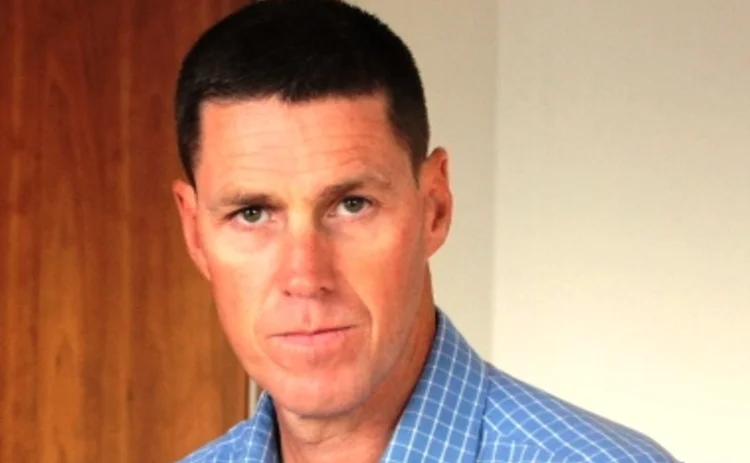June 2015: Teaching Old Dogs New Tricks
Victor Anderson says firms need to bring in talent from other industries.

According to Martin Larsson, Deutsche Asset and Wealth Management's CTO for alternative investments, his organization recently appointed a CIO from the aerospace industry, while in Waters' April issue ─ the cyber security issue ─ we provided a number of examples of heads of security with law enforcement and defense industry backgrounds working at capital markets firms, illustrating the extent to which skills honed in one, apparently unconnected industry, are applicable to others.
Some might question the wisdom of appointing someone from outside the industry or organization, especially when it comes to mission-critical roles. But we need look no further than the world of professional sport to find an example of someone applying his "alien" knowledge and experience, and by so doing revolutionizing various aspects of the sport that he has just joined.
Team Sky's appointment of Tim Kerrison as the professional cycling team's head of athlete performance in 2009 paved the way for transforming the way riders prepared for races. Prior to starting with the team, Kerrison knew precious little about cycling ─ his background was in swimming ─ but Australians know a thing or two about producing world-class swimmers. Kerrison spent a great deal of time observing and questioning the current norms of the sport, before applying his knowledge about the preparation and physiological conditioning of swimmers, eschewing long-held beliefs that riders need to use low-key races as a way of training for the more important races later in the season.
Kerrison and Sky turned that model on its head, instead incorporating highly specific training regimes designed to mimic the rigors of racing, ensuring that the team and its riders had the best chances of success from the first race day of the season until the very last. Anecdotal evidence suggests that the training sessions are not for the faint-hearted, given their brutal nature, but only a fool would question their efficacy, given the team's phenomenal success.
Although some capital markets firms have, like Team Sky, been quick to embrace "foreign" practitioners and practices, our industry as a whole is still only scratching the surface of available talent, a scenario likely to change as operational and technology challenges continue to intensify.
Only users who have a paid subscription or are part of a corporate subscription are able to print or copy content.
To access these options, along with all other subscription benefits, please contact info@waterstechnology.com or view our subscription options here: https://subscriptions.waterstechnology.com/subscribe
You are currently unable to print this content. Please contact info@waterstechnology.com to find out more.
You are currently unable to copy this content. Please contact info@waterstechnology.com to find out more.
Copyright Infopro Digital Limited. All rights reserved.
As outlined in our terms and conditions, https://www.infopro-digital.com/terms-and-conditions/subscriptions/ (point 2.4), printing is limited to a single copy.
If you would like to purchase additional rights please email info@waterstechnology.com
Copyright Infopro Digital Limited. All rights reserved.
You may share this content using our article tools. As outlined in our terms and conditions, https://www.infopro-digital.com/terms-and-conditions/subscriptions/ (clause 2.4), an Authorised User may only make one copy of the materials for their own personal use. You must also comply with the restrictions in clause 2.5.
If you would like to purchase additional rights please email info@waterstechnology.com
More on Emerging Technologies
Market data costs defy cyclicality
Trading firms continue to grapple with escalating market data costs. Can innovative solutions and strategic approaches bring relief?
As trading firms embrace AI, so do hackers
According to a Google cybersecurity report, cybercriminals are turning to AI to sharpen their attacks.
AI & data enablement: A looming reality or pipe dream?
Waters Wrap: The promise of AI and agents is massive, and real-world success stories are trickling out. But Anthony notes that firms still need to be hyper-focused on getting the data foundation correct before adding layers.
Waters Wavelength Ep. 343: Broadridge’s Jason Birmingham
This week, Jason Birmingham of Broadridge talks with Tony about the importance of fundamentals as technology rapidly evolves.
Data standardization is the ‘trust accelerator’ for broader AI adoption
In this guest column, data product managers at Fitch Solutions explain AI’s impact on credit and investment risk management.
BNY inks AI deal with Google, Broadridge moves proxy voting to AWS, Expero delivers ICE market data, and more
The Waters Cooler: TSX Venture Exchange data hits the blockchain, SmartTrade acquires Kace, and garage doors link to cloud costs in this week’s news roundup.
Everyone wants to tokenize the assets. What about the data?
The IMD Wrap: With exchanges moving market data on-chain, Wei-Shen believes there’s a need to standardize licensing agreements.
Google, CME say they’ve proved cloud can support HFT—now what?
After demonstrating in September that ultra-low-latency trading can be facilitated in the cloud, the exchange and tech giant are hoping to see barriers to entry come down.








